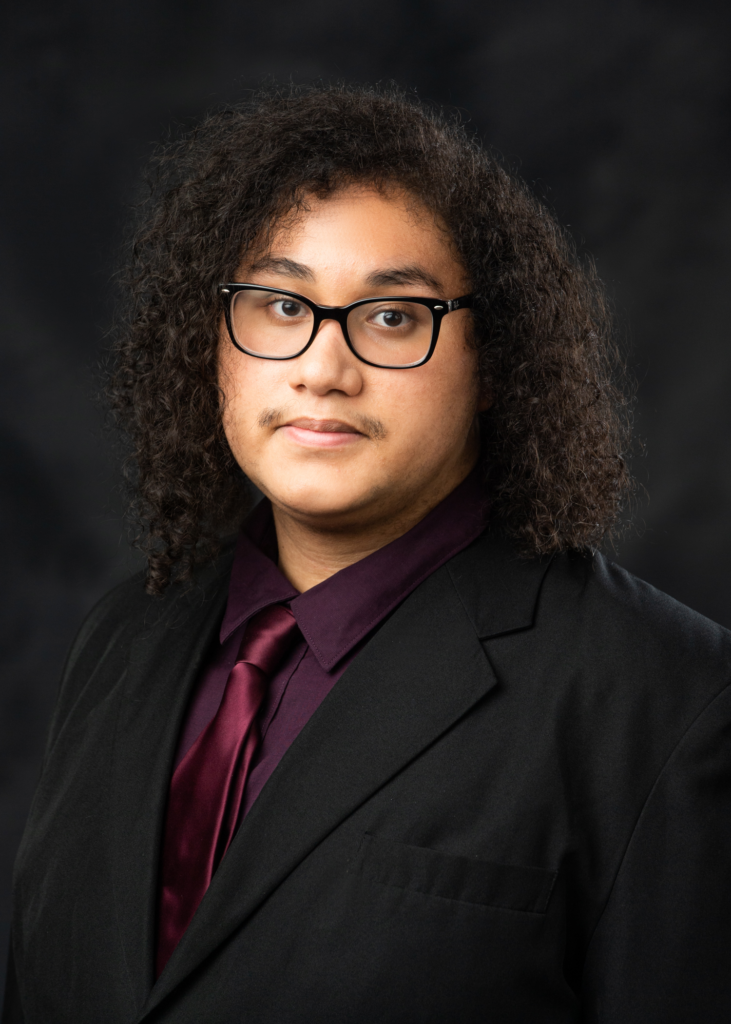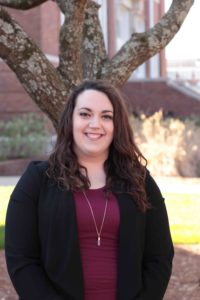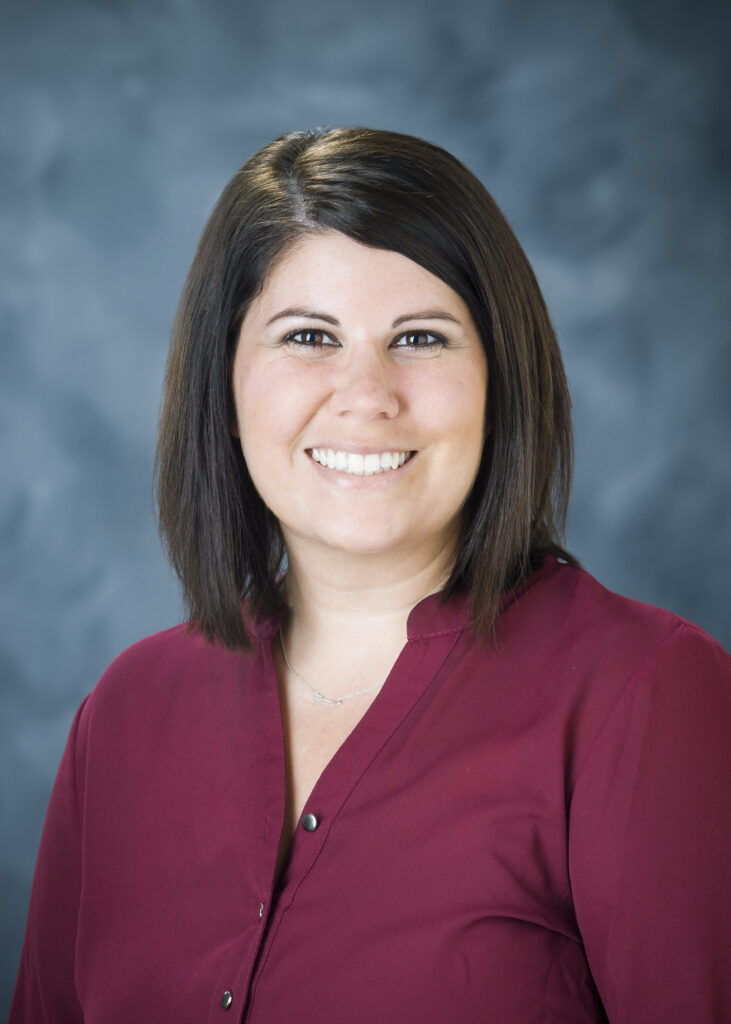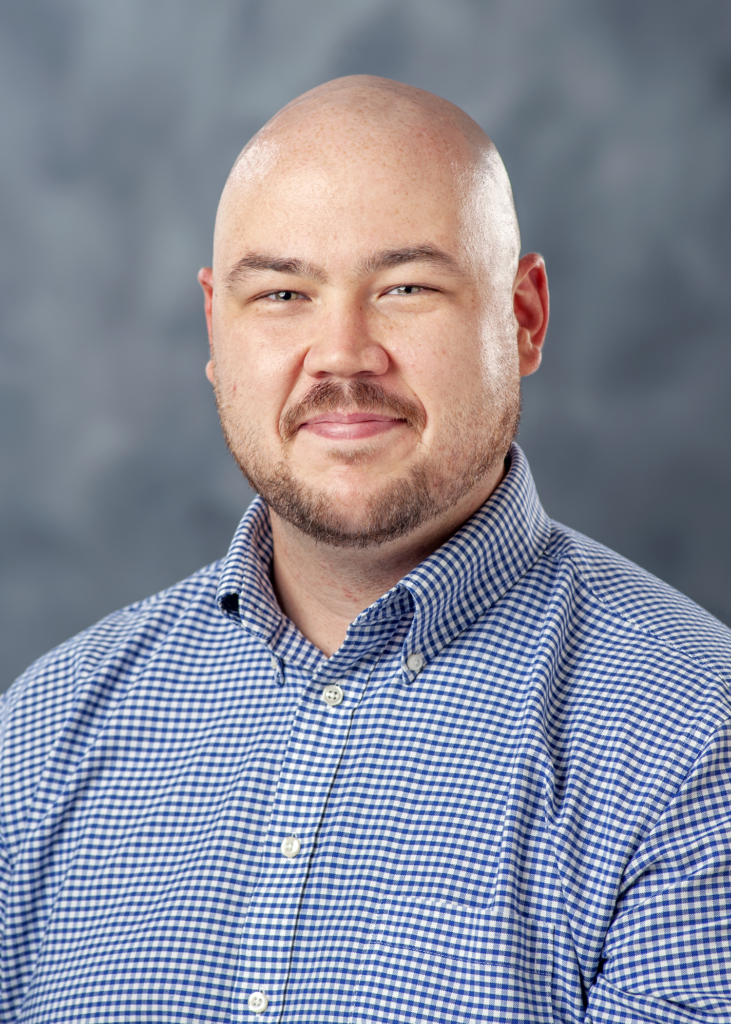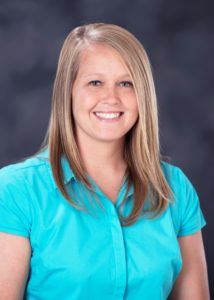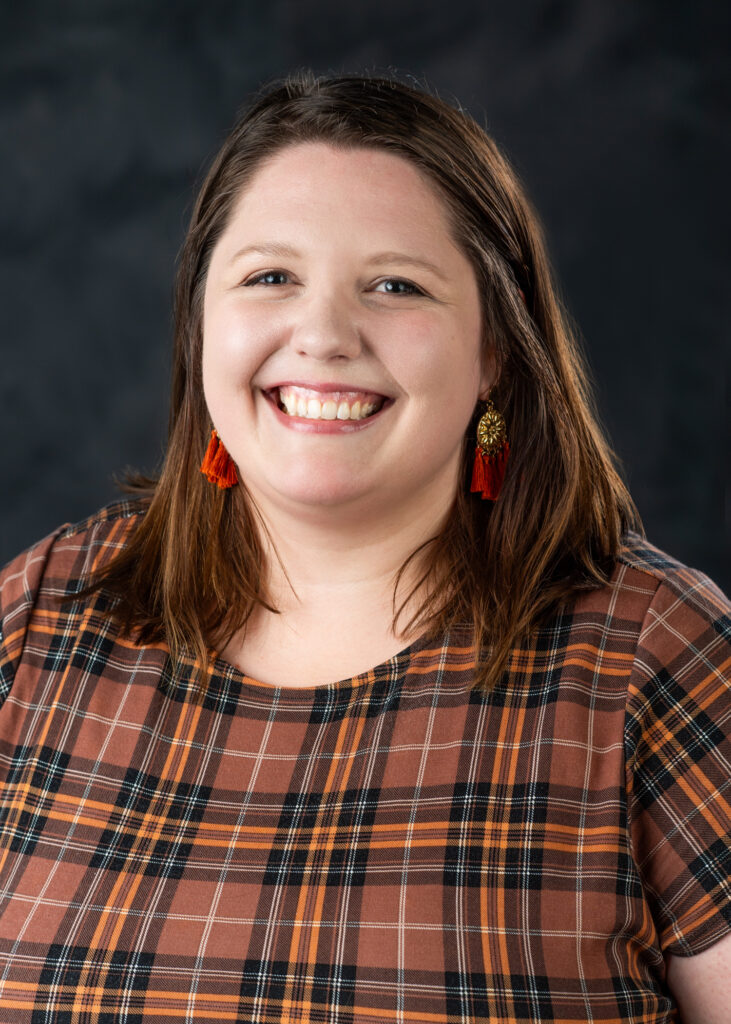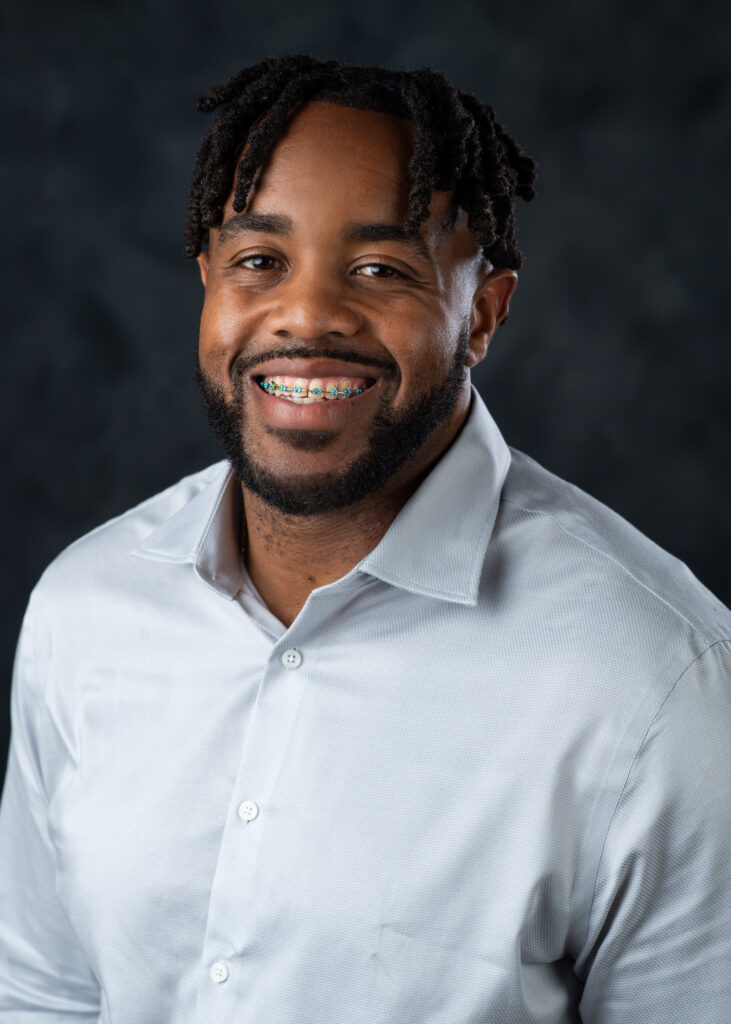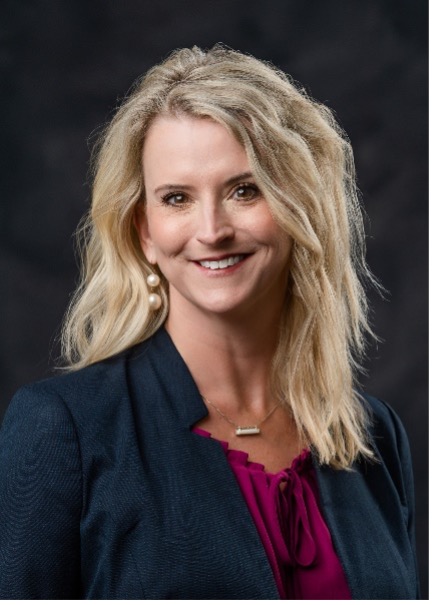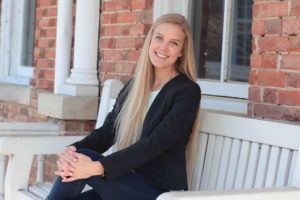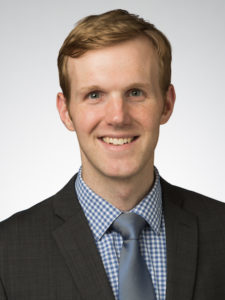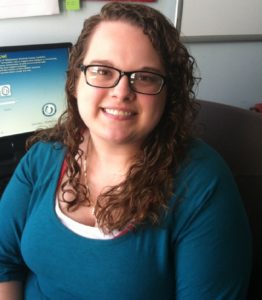| *Graduate student author **Undergraduate Author
In Press
91. Xue, P., Merikanto, I, Chung, F., Morin, C.M., Espie, C., Bjorvatn, B., Cedernaes, J., Landtblom, A., Penzel, T., De Gennaro, L., Holzinger, B., Matsui, K., Hrubos-Strøm, H. Korman, M., Leger, D., Mota-Rolim, S., *Bolstad, C.J., Nadorff, M., Plazzi, G., Reis, C., Chan, R.N.Y., Wing, Y.K., Yordanova, J., Bjelajac, A.K., Inoue, Y., Partinen, M., Dauvilliers, Y., Benedict, C. Persistent short nighttime sleep duration is associated with a greater post-COVID risk in fully mRNA-vaccinated individuals. Translatinal Psychiatry.
90. Bjorvatn, B., Merikanto, I., Reis, C., Korman, M., Bjelajac, A.K., Holzinger, B.; De Gennaro, L.; Wing, Y.K.; Morin, C.M.; Espie, C.A.; Benedict, C.; Landtblom, A.; Matsui, K.; Hrubos-Strøm, H.; Mota-Rolim, S.; Nadorff, M.R.; Plazzi, G.; Chan, R.N.Y.; Partinen, M.; Dauvilliers, Y.; Chung, F.; Forthun, I. (In Press). Shift workers are at increased risk of severe COVID-19 compared with day workers: Results from the International COVID Sleep Study (ICOSS) of 7141 workers. Chronobiology International. PDF
89. Merikanto, I., Dauvilliers, Y., Chung, F., Wing, Y.K., De Gennaro, L., Holzinger, B., Bjorvatn, B., Morin, C.M., Penzel, T., Benedict, C., Bjelajac, A, Chan, N.Y., Espie, C.A., Hrubos-Strøm, H., Inoue, Y., Korman, M, Landtblom, A, Léger, D., Matsui, K., Mota-Rolim, S., Nadorff, M.R., Plazzi, G., Reis, C., Yordanova, J., & Partinen, M. (In Press). Sleep symptoms are essential features of Long COVID – comparing healthy controls to COVID-19 cases of different severity in the International COVID Sleep study (ICOSS-II). Journal of Sleep Research.
88. *Pate, A.R., DeShong, H.L., Stafford, T.W.D., Nadorff, M.R. (In Press). Impact of social support on suicidal ideation and attempts among gender minority adults. International Journal of Aging and Human Development.
87. Liu, Y., Partinen, E., Chan, N.Y., Dauvilliers, Y., Inoue, Y., De Gennaro, L., Plazzi, G., *Bolstad, C.J., Nadorff, M.R., Merikanto, I., Bjorvatn, B., Han, F., Zhang, B., Cunha, A.S., Mota-Rolim, S., Léger, D., Matsui, K., Espie, C.A., Chung, F., Morin, C.M., Sieminski, M., Penzel, T., Holzinger, B., Partinen, M., & Wing, Y.K. (In Press). Dream-enactment behaviors during the COVID-19 pandemic: An international COVID-19 sleep study. Journal of Sleep Research.
86. *Tubbs, A.S., Hendershot, S., Ghandi, S.B., Nadorff, M.R., Drapeau, C.W., Fernandez, F., Perlis, M.L., & Grandner, M.A. (In Press). Social jetlag and other aspects of sleep are linked to non-suicidal self-injury among college students. Archives of Suicide Research. PDF
85. *McDaniel, C., DeShong, H.L., Rufino, K., & Nadorff, M.R. (In Press). The synergistic effects of neuroticism and extraversion on suicidal ideation, single attempts, and multiple attempts in an inpatient sample. Psychiatry Research.
84. *Bolstad, C.J., Cui, R., Fiske, A., & Nadorff, M.R. (In Press). Age Moderates the Relation Between Sleep Problems and Suicide Risk. Clinical Gerontologist. PDF
83. *Bolstad, C.J., *Szkody, E., & Nadorff, M.R. (In Press). Factor analysis and validation of the Disturbing Dreams and Nightmares Severity Index. Dreaming. PDF
82. Pierpaoli-Parker, C., *Bolstad, C., *Szkody, E., Amara, A.W., Nadorff, M.R., & Thomas,S.J. (In Press). The Impact of Imagery Rehearsal Therapy on Dream Enactment in a Patient with REM-Sleep Behavior Disorder: A Case Study. Dreaming. PDF
81. McCall, W.V., Porter, B., *Pate, A.R., *Bolstad, C.J., Drapeau, C.W., Krystal, A.D., Benca, R.M., Rumble, M.E., Nadorff, M.R. (In Press). Examining Suicide Assessment Measures for Research Use: Using Item Response Theory to Optimize Psychometric Assessment for Research on Suicidal Ideation in Major Depressive Disorder. Suicide and Life-Threatening Behavior. PDF
80. Dozier, M. E., Speed, K. J., Davidson, E. J., *Bolstad, C. J., Nadorff, M. R., & Ayers, C. (In Press). The association between sleep and late life hoarding. International Journal of Aging and Human Development. PDF
2022
79. Tidler, A., Krakow, B., McIver, N., Ulibarri, V., & Nadorff, M.R. (In Press). Sleepiness and fatigue associated with avoidance behavior in moderately severe PTSD patients presenting to a community-based sleep center. Minerva Psychiatry.
78. *Amadi, S.C., Berman, M.E., *Timmins, M.A., Guillot, C.R., Fanning, J.R., Nadorff, M.R., & McCloskey, M.S. (in press). Analgesic effect of alcohol mediates the association between alcohol intoxication and deliberate self-harm. Archives of Suicide Research. PDF
77. *Freitag, S., *Bolstad, C. J., Nadorff, M. R. & Lamis, D. A. (in press). Social functioning mediates the relation between symptoms of depression, anxiety, and suicidal ideation among youth. Journal of Child and Family Studies. PDF
2021
76. *Bolstad, C. J., **Edwards, G. E., Gardner, A. & Nadorff, M. R. (2021). Pets and a Pandemic: An exploratory mixed method analysis of how the COVID-19 pandemic affected dogs, cats, and owners. Human-Animal Interaction Bulletin, 11(2), 65-78. PDF
75. Brandao, L. E. M., Martikainen, T., Merikanto, I., Holzinger, B., Morin C., Espie, C., Bolstad, C. J., Leger, D., Chung, F., Plazzi, G., Dauvilliers, Y., Matsui, K., De Gennaro, L., Sieminski, M., Nadorff, M. R., Chan, N. Y., Wing, Y. K., Mota-Rolim, S. A., Inoue, Y., Partinen, M., Benedict, C., Bjorvatn, B., & Cedernaes, J. (2021). Social jetlag changes during the COVID-19 pandemic as a predictor of insomnia – a multi-national survey study. Nature and Science of Sleep, 13, 1711-1722. PDF
74. Morin, C. M., Bjorvatn, B., Chung, F., Holzinger, B., Partinen, M., Penzel, T., Ivers, H., Wing, Y. K., Chan, N. Y., Merikanto, I., Mota-Rolim, S., Macêdo, T., De Gennaro, L., Léger, D., Dauvilliers, Y., Plazzi, G., Nadorff, M. R., Bolstad, C. J., Sieminski, M., Benedict, C., … Espie, C. A. (2021). Insomnia, anxiety, and depression during the COVID-19 pandemic: an international collaborative study. Sleep medicine, 87, 38–45. Advance online publication. https://doi.org/10.1016/j.sleep.2021.07.035. PDF
73. *Bolstad, C. J., Porter B., Brown, C. J., Kennedy, R. E. & Nadorff, M. R. (2021). The relation between pet ownership, anxiety, and depressive symptoms in late life: Propensity score matched analyses. Anthrozoös, 34(5), 671-684. PDF
72. Chung, F., Waseem, R., Pham, C., Penzel, T., Han, F., Bjortvatn, B., Morin, C.M., Holzinger, B., Espie, C.A., Benedict, C., Cedernas, J., Saaresranta, T., Wing, Y.K., Nadorff, M.R., Dauvillers, Y., De Gennaro, L., Plazzi, G., Merikanto, I., Matsui, K., Leger, D., Sieminski, M., Mota-Rolim, S., Inoue, Y., Partinen, M., and the International COVID Sleep Study (ICOSS) group (2021). Risk of sleep apnea, comorbidities, and risk of COVID-19: A population based international harmonized study. Sleep and Breathing, 25(2), 849-860. PDF
71. Worley, C.B., *Bolstad, C.J., and Nadorff, M.R. (2021). Epidemiology of disturbing dreams in a diverse U.S. sample. Sleep Medicine, 83, 5-12. PDF
70. Robertson, M.N., DeShong, H.L., Steen, J.S., Buys, D.R., & Nadorff, M.R. (2021). Mental Health First Aid training for extension agents in rural communities. Suicide and Life-Threatening Behavior, 51(2), 301-307. PDF
69. *Salem, T., Winer, E. S., *Jordan, D. G., Nadorff, M. R., Fanning, J. R., Veilleux, J. C.,*Swinea, J.C., Berman, M. E. (2021). Anhedonia and the relationship between other depressive symptoms and aggressive behavior. Journal of Interpersonal Violence, 36(7-8), 3257-3284. PDF
68. *Simmons, Z., Burlingame, G., Korbanka, J., Eastman, K., Thomas, D., Christensen, J., Jenson, M., Nadorff, M.R., & Kay, D.B. (2021). Insomnia symptom severity is associated with increased suicidality and prospective death by suicide in a psychiatric sample. SLEEP, 44(7), zsab032. PDF
67. Nadorff, M.R., DeShong, H.L., Golding, S., Cerel, J., *McDaniel, C.J., *Pate, A.R.,*Kelley, K., & *Walgren, M.D. (2021). Rates of exposure to natural, accidental, and suicide deaths. Suicide and Life-Threatening Behavior, 51(3), 478-481. PDF
66. * Fränkl, E.C., Scarpelli, S., Nadorff, M.R., Bjorvatn, B., Bolstad, C., Chan, N.Y., Chung, F., Dauvilliers, D., Espie, C.A., Inoue, Y., Leger, D., Macêdo, T., Matsui, K., Merikanto, I., Morin, C.M.,Mota-Rolim, S., Partinen, M., Penzel, T., Plazzi, G., Sieminski, M., Wing, Y.K., De Gennaro, L., & Holzinger, B. (2021). How our dreams changed during the COVID-19 pandemic: effects and correlates of dream recall frequency during the COVID-19 pandemic: a multinational study on 19,355 adults. Nature and Science of Sleep, 15, 1573-1591. PDF
2020
65. *Timmins, M.A., Berman, M.E., Nadorff, M.R., *Amadi, S.C., Fanning, J.R., McCloskey, M.S. (2020). Does state dissociation mediate the relation between alcohol intoxication and deliberate self-harm? Archives of Suicide Research, 24(sup1), 231-242. PDF
64. Rufino, K.A., Ward-Ciesielski, E., Webb, C.A., & Nadorff, M.R. (2020). Emotion regulation difficulties mediate the relation between nightmares and suicide in an adult psychiatric inpatient sample. Psychiatry Research, 293, 113437. PDF
63. Mayer, L., Rüsch, N., Frey, L.M., Nadorff, M.R., Drapeau, C.W., Sheehan, L., & Oexle, N. (2020). Anticipated suicide stigma, secrecy, and suicidality among suicide attempt survivors. Suicide and Life-Threatening Behavior, 50, 707-713. PDF
62. Lund E. M., Schultz, J. C., Thomas, K. B., Nadorff, M. R., Galbraith, K., & DeTore, N. R. (2020). “It’s awful when we get it wrong”: An exploratory qualitative study of vocational rehabilitation counselors’ perspectives on suicide. OMEGA – Journal of Death and Dying,81(4), 551-556. PDF
61. *Bolstad, C. J. & Nadorff, M. R. (2020). What types of insomnia relate to anxiety and depression in late life? Heliyon, 6, e05315. PDF
60. Lund, E. M., Nadorff, M. R., Thomas, K. B., & Galbraith, K. (2020). Examining the contributions of disability to suicidality in the context of depression symptoms and other sociodemographic factors. OMEGA: Journal of Death and Dying, 81(2), 298-318. PDF
59. Crew, E.C., Baron, K.G., Grandner, M.A., Ievers-Landis, C.E., McCrae, C.S., Nadorff, M.R., Nowakowski, S., Ochsner Margolies, S., Hansen, K. (2020). The Society of Behavioral Sleep Medicine (SBSM) COVID-19 Task Force: Objectives and Summary Recommendations for Managing Sleep During a Pandemic. Behavioral Sleep Medicine, 18(4), 570 – 572. PDF
58. Lund, E. M., Schultz, J. C., Thomas, K. B., Nadorff, M. R., Sias, C. M., Chowdhury, D., DeTore, N. R., & Galbraith, K. (2020). “I honestly would not have known what to do”: An exploratory study of perspectives on client suicide among vocational rehabilitation support staff. Journal of Death and Dying, 81(2), 298-318. PDF
2019
57. Lund, E. M., Schultz, J. C., McKnight-Lizotte, M., Nadorff, M. R., Galbraith, K., & Thomas, K. B. (2019). Suicide-related experience, knowledge, and perceived comfort and crisis competency among vocational rehabilitation support staff. Journal of Rehabilitation, 85(4), 33-41. PDF
56. Drapeau, C.W., Nadorff, M.R., McCall, W.M., *Titus, C.E., *Barclay, N., **Payne, A. (2019). Screening for suicide risk in adult sleep patients. Sleep Medicine Reviews, 46, 17-26. PDF
55. Gieselmann, A., Aoudia, M.A, Carr, M., Germain, A., Gorzka, R., Holzinger, B., Kleim, B., Krakow, B., Kunze, A.E., Lancee, J., Nadorff, M.R., Nielsen, T., Riemann, D., Sandahl, H., Schlarb, A.A., Schmid, C., Schredl, M., Spoormaker, V.I., Steil, R., van Schagen, A.M., Wittmann, L., Zshoche, M., Pietrowsky, R. (2019). Aetiology and treatment of nightmare disorder: State of the art and future perspectives. Journal of Sleep Research, 28(4), e12820. PDF
54. *Daghigh, A., Daghigh, V,. Niazi, M., & Nadorff, M.R. (2019). The association between anhedonia, suicide ideation, and suicide attempts: A replication in a Persian student sample. Suicide and Life-Threatening Behavior, 49(3), 678-683. PDF
53. Nadorff, M.R., *Titus, C.E., *Pate, A.R. (2019). A meaningful step toward understanding the cause and impact of nightmares. Journal of Clinical Sleep Medicine, 15(2), 179-180. – peer-reviewed commentary. PDF
52. Ellis, T.E., Rufino, K.A., & Nadorff, M.R. (2019). Treatment of nightmares in psychiatric inpatients with Imagery Rehearsal Therapy: An open trial and case series. Behavioral Sleep Medicine, 17(2). PDF
51. Lund, E.M., Nadorff, M.R., Seader, K., Thomas, K.B. (2019). Comparing internal consistency, overall scores, and response patterns on the Suicidal Behavior Questionnaire-Revised (SBQ-R) in people with and without disabilities. Rehabilitation Counseling Bulletin, 62(2), 108-120. PDF
2018
50. McIver, N.D., Krakow, B., Krakow, J., Nadorff, M.R., Ulibarri, V.A., & Baade, R. (2018). Sleep Disorder Prevalence in At-Risk Adolescents and Potential Effects of Nightmare Triad Syndrome. International Journal of Adolescent Medicine and Health, 32(1), /j/ijamh.2020.32.issue-1/ijamh-2017-0125/ijamh-2017-0125.xml. https://doi.org/10.1515/ijamh-2017-0125. PDF
49. Ward-Ciesielski, E., Winer, E.S., Drapeau, C.W., Nadorff, M. R. (2018). Examining components of emotion regulation in relation to sleep problems and suicide risk. Journal of Affective Disorders, 241, 41-48. PDF
48. Lund, E. M., Schultz, J. C., Nadorff, M. R., Thomas, K. B., Chowdhury, D., & Galbraith, K. (2018). Vocational rehabilitation counselors’ experiences with and knowledge of non-suicidal self-injury. Journal of Applied Rehabilitation Counseling, 49(3), 12-19.
47. Lund, E. M., Schultz, J. C., Nadorff, M. R., Thomas, K. B., Chowdhury, D., & Galbraith, K. (2018). Experience with and knowledge in non-suicidal self-injury in vocational rehabilitation support staff. Journal of Applied Rehabilitation Counseling, 49(1), 32-39.
46. *Titus, C.E., *Speed, K.J., *Cartwright, P.M., Drapeau, C.W., **Heo, Y., & Nadorff, M.R. (2018). What role do nightmares play in suicide? A Brief Exploration. Current Opinion in Psychology, 22, 59-62. PDF
45. *Speed, K.J., Drapeau, C.W., Nadorff, M.R. (2018). Differentiating single and multiple suicide attempters: What nightmares can tell us that other predictors cannot. Journal of Clinical Sleep Medicine, 14(5), 829-834. PDF
44. *Webb, C.A., *Cui, R., *Titus, C., Fiske, A., & Nadorff, M.R. (2018). Sleep Disturbance, Activities of Daily Living, and Depressive Symptoms among Older Adults. Clinical Gerontologist, 41(2), 172-180. PDF
43. Nadorff, M.R., Drapeau, C. W., & Pigeon, W.R. (2018). Psychiatric illness and sleep in older adults: comorbidity and opportunities for intervention. Sleep Medicine Clinics, 13(1), 81-91. PDF
42. Lund, E.M., Nadorff, M.R., Galbraith, K., Thomas, K.B. (2018). Using Amazon Mechanical Turk to recruit participants with disabilities. SAGE Research Methods Cases. PDF
2017
41. Berman, M.E., Fanning, J.R., Guillot, C.R., Marsic, A., Bullock, J., Nadorff, M.R., & McCloskey, M.S. (2017). Effects of alcohol dose on deliberate self-harm in men and women. Journal of Clinical and Consulting Psychology, 85(9), 854-861. PDF
40. *Michaels, M.S., **Balthrop, T., Nadorff, M.R., Joiner, T.E. (2017). Total sleep time as a predictor of suicidal behavior. Journal of Sleep Research, 26(6), 732-738. PDF
39. *Salem, T., Winer, E. S., & Nadorff, M. R. (2017). Combined behavioural markers of cognitive biases are associated with anhedonia. Cognition and Emotion, 32, 422-430. PDF
38. *Lund, E.M., Schultz, J.C., Nadorff, M.R. (2017). The Factor Structure, Internal Consistency, and Convergent Validity of Two Suicide Assessment Competency Measures in Vocational Rehabilitation Counselors. Rehabilitation Counseling Bulletin, 61(1), 20-27. PDF
37. Lund, E.M., Schultz, J.C., Nadorff, M.R., Galbraith, K., & Thomas, K.B. (2017).Experience, Knowledge, and Perceived Comfort and Clinical Competency in Working with Suicidal Clients among Vocational Rehabilitation Counselors. Rehabilitation Counseling Bulletin, 61(1), 54-63. PDF
36. Drapeau, C.W. & Nadorff, M.R. (2017). Suicidality in sleep disorders: Prevalence, impact, and management strategies. Nature and Science of Sleep, 2017:9, 213 – 226. PDF
35. Winer, E.S., *Bryant, J., Bartoszek, G., Rojas, E., Nadorff, M.R., & *Kilgore, J. (2017). Mapping the relationship between anxiety, anhedonia, and depression. Journal of Affective Disorders, 221, 289 – 296. PDF
34. *Hom, M. A., Hames, J. L., Bodell, L. P., Buchman-Schmitt, J. M., *Chu, C., Chiurliza, B., *Michaels, M. S., Rogers, M. L., Ribeiro, J. D., Nadorff, M. R., Winer, E. S., Lim, I. C., Rudd, M. D., & Joiner, T. E. (2017). Investigating insomnia as a cross-sectional and longitudinal predictor of loneliness: Findings from six samples. Psychiatry Research, 253, 116-128. PDF
33. *Bryant, J., Winer, E.S., *Salem, T., & Nadorff, M.R. (2017). Struggling Toward Reward: Recent Experience of Anhedonia Interacts with Motivation to Predict Reward Pursuit in the Face of a Stressful Manipulation. PLOS ONE, 12(3):e0173439, doi:10.1371/journal.pone.0173439. PDF
32. Jahn, D.R., Drapeau, C.W., Wacha-Montes, A., Grant, B.L., Nadorff, M.R., Pusateri, M.J., Hannah, D.J., Bryant, G., Cukrowicz, K.C. (2017). Characteristics of and barriers to suicidology training in undergraduate and clinically-oriented graduate-level psychology programs. Suicidology Online, 8, 104-113. Retrieved from http://www.suicidology-online.com/. PDF
31. Zielinski, M.J., Veilleux, J.C., Winer, E.S., & Nadorff, M.R. (2017). A short-term longitudinal examination of the relations between depression, anhedonia, and self-injurious thoughts and behaviors in adults with a history of self-injury. Comprehensive Psychiatry, 73, 187-195. PDF
2016
30. Lund, E.M., Schultz, J.C., Nadorff, M.R., Galbraith, K., & Thomas, K.B. (2016). Psychometric properties of two self-report suicide assessment and intervention competency measures in a sample of vocational rehabilitation support staff. The Australian Journal of Rehabilitation Counselling, 1-17. doi:10.1017/jrc.2016.15 Impact factor: unindexed. PDF
29. Winer, E. S., Cervone, D., *Bryant, J.C., McKinney, C., Liu, R.T., & Nadorff, M. R.(2016). Distinguishing Mediational Models and Analyses in Clinical Psychology: Atemporal Associations Do Not Imply Causation. Journal of Clinical Psychology, 72(9), 947-955. Impact factor: 2.123. PDF
28. Krakow, B,. Ulibarri, V., McIver, N., & Nadorff, M.R. (2016). A novel therapy for chronic sleep onset insomnia: A retrospective, nonrandomized controlled study of auto-adjusting, dual level, positive airway pressure technology. The Primary Care Companion, 18(5), e1-e10. Impact factor: 1.00 (ResearchGate estimate). PDF
27. Winer, E. S., *Drapeau, C. W., Veilleux, J. C., & Nadorff, M. R. (2016). The association between anhedonia, suicidal ideation, and suicide attempts in a large student sample. Archives of Suicide Research, 20(2), 265-272. Impact factor 1.901. PDF
26. Nadorff, M.R., **Pearson, M.D., *Golding, S. (2016). Explaining the relation between nightmares and suicide. Journal of Clinical Sleep Medicine, 12(3), 289-290. Impact factor 3.429. PDF
25. *Lund, E.M., Nadorff, M.R., *Seader, K. (2016). The relationship between suicidality and disability when accounting for depressive symptomology. Rehabilitation Counseling Bulletin, 59(3), 185-188. Impact factor 0.744. PDF
24. *Lund, E.M., Nadorff, M.R., Winer, E.S., & *Seader, K. (2016). Is suicide an option? The impact of disability on suicide acceptability in the context of depression, suicidality, and demographic factors. Journal of Affective Disorders, 189(1), 25-35. (also see corrigendum). Impact factor: 3.432. PDF
2015
23. *Golding, S., Nadorff, M. R., Winer, E. S., & **Ward, K. C. (2015). Unpacking sleep and suicide in older adults in a combined online sample. Journal of Clinical Sleep Medicine, 11(12), 1385–1392. Impact factor: 2.710. PDF
22. Nadorff, M. R., Nadorff, D. K., & Germain, A. (2015). Nightmares: Under- Reported, Undetected, and Therefore Untreated. Journal of Clinical Sleep Medicine, 11(7), 747-750. Impact factor: 2.710. PDF
21. Bernert, R.A. & Nadorff, M.R. (2015). Sleep disturbance and suicidal behavior. Sleep Medicine Clinics, 10(1), 35-39. Impact factor: 0.95 (ResearchGate estimate). PDF
2014
20. Nadorff, M.R., Ellis, T.E., & Allen, J.G., Winer, E. S., & Herrera, S. (2014). Presence and persistence of sleep-related symptoms and suicidal ideation in psychiatric inpatients. CRISIS, 35(6), 398 – 405. Impact factor: 1.762. PDF
19. Nadorff, M.R., *Salem, T., Winer, E.S., Lamis, D.A., Nazem, S., Berman, M.E. (2014). Explaining alcohol use and suicide risk: A moderated mediation model involving insomnia symptoms and gender. Journal of Clinical Sleep Medicine, 10(12), 1317-1323. Impact factor: 2.826. PDF
18. Winer, E. S., Nadorff, M.R., Ellis, T.E., Allen, J.G., Herrera, S., *Salem, T. (2014). Anhedonia predicts suicidal ideation in a large psychiatric inpatient sample. Psychiatry Research, 218(1-2), 124-128. Impact factor: 2.682. PDF
17. Ivan, M.C., Amspoker, A., Nadorff, M.R., Kunik, M. E., Cully, J. A., Wilson, N., Calleo, J., Kraus-Schuman, C., & Stanley, M. A. (2014). Alcohol use, anxiety, and insomnia in older adults with Generalized Anxiety Disorder. American Journal of Geriatric Psychiatry, 22(9), 875-883. Impact factor: 3.519. PDF
16. Nadorff, M.R., *Lambdin, K. K., Germain, A. (2014). Pharmacologic and non-pharmacologic treatments for nightmare disorder. International Review of Psychiatry, 26(2), 225 – 236 (invited submission). Impact factor: 1.403. PDF
15. Nadorff, M.R., Anestis, M. D., Nazem, S., **Harris, H. C., & Winer, E. S. (2014). Sleep Disorders and the Interpersonal-Psychological Theory of Suicide: Independent Pathways to Suicidality? Journal of Affective Disorders, 152-154, 505 – 512. Impact factor: 3.705. PDF
14. Bagge, C. L., Lamis, M. A., Nadorff, M. R., & Osman, A. (2014). Relations between hopelessness, depressive symptoms, and suicidality: mediation by reasons for living. Journal of Clinical Psychology, 70(1), 18 – 31. Impact factor: 2.111. PDF
13. Nadorff, M. R., Porter, B., Rhoades, H. M., Kunik, M. E., Greisinger, A. J., & Stanley, M. A. (2014). Bad dream frequency in older adults with Generalized Anxiety Disorder: Prevalence, correlates, and effect of cognitive behavioral treatment for anxiety. Behavioral Sleep Medicine, 12(1), 28 – 40. Impact factor: 1.744. PDF
2013
12. Fiske, A., Bamonti, P., Nadorff, M. R., **Petts, R., Sperry, J. A. (2013) Control strategies and suicidal ideation in older primary care patients with functional limitations. International Journal of Psychiatry in Medicine, 46(3), 271-289. Impact factor: 0.805. PDF
11. O’Riley, A.A,. Nadorff, M.R., Conwell, Y., Edelstein, B. (2013). Challenges associated with managing suicide risk in long-term care facilities. Annals of Long-Term Care, 21(6), 28 – 34. Impact factor: unindexed. PDF
10. Pane, H.T., White, R.S., Nadorff, M.R., Grills-Taquechel, A., & Stanley, M.A.(2013). Multisystemic therapy for child non-externalizing psychological and health problems: A preliminary review. Clinical Child and Family Psychology Review, 16(1), 81 – 99. Impact factor: 4.750. PDF
9. Nadorff, M.R., Nazem, S., & Fiske, A. (2013). Insomnia symptoms, nightmares, and suicide risk: duration of sleep disturbance matters. Suicide and Life-Threatening Behavior, 43(2), 139 – 149. Impact factor: 1.403. PDF
8. Nadorff, M. R., Fiske, A., Sperry, J. A., **Petts, R., & Gregg, J. J. (2013). Insomnia Symptoms, Nightmares and Suicidal Ideation in Older Adults. Journal of Gerontology: Psychological Sciences, 68(2), 145-152. Impact factor: 2.852. PDF
2012
7. Cully, J. A., Armento, M. E. A., Mott, J. Nadorff, M. R., Naik, A., Stanley, M. A., Sorocco, K., Kunik, M. E., Peterson, N., Kauth, M. R. (2012). Brief cognitive behavioral therapy in primary care: using hybrid effectiveness-implementation designs to advance care practices. Implementation Science, 7:64. Impact factor: 2.372. PDF
6. Davidov, D. M., Nadorff, M. R., Jack, S. M., & Coben, J.H. (2012). Nurse home visitors’ perspectives of mandatory reporting of children’s exposure to intimate partner violence to child protection agencies. Public Health Nursing.29(5), 412-23, doi: 10.1111/j.1525-1446.2011.01003.x. Impact factor: 0.780. PDF
5. Davidov, D. M., Nadorff, M. R., Jack, S. M., & Coben, J. H. (2012). Nurse home visitors’ perceptions of mandatory reporting of intimate partner violence to law enforcement agencies. Journal of Interpersonal Violence, 27(12), 2484-502. Impact factor: 1.355. PDF
4. Friedlander, A., Nazem, S., Fiske, A., Nadorff, M. R., & Smith, M. (2012). Self-concealment and suicidal behavior. Suicide and Life-Threatening Behavior. 42, 332-340. doi: 10.1111/j.1943-278X.2012.00094.x. Impact factor: 1.758. PDF
3. Ellis, T. E., Green, K. L., Allen, J. G., Jobes, D. A., & Nadorff, M. R. (2012). Collaborative assessment and management of suicidality in an inpatient setting: Results of a pilot study. Psychotherapy 49(1), 72-80. Impact factor: 2.629. PDF
2011
2. Nadorff, M.R., Nazem, S., & Fiske, A. (2011). Insomnia symptoms, nightmares and suicidal ideation in a college sample. SLEEP, 34(1), 93-98. Impact factor: 5.402. PDF
2009
1. Cummins, L.F., Nadorff, M.R., & Kelly, A.E. (2009). Both winning and negative affect can lead to reckless gambling. Psychology of Addictive Behaviors, 23(2), 287-294. Impact factor: 2.679. PDF
Links to articles are provided for academic use only. Links will be removed if requested by the publisher of the work or any of the co-authors.
|










